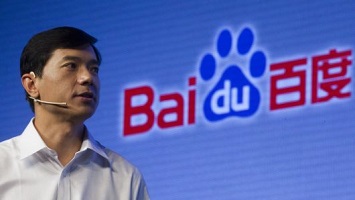Ford and Chinese internet giant Baidu announced a tie-up Wednesday that will see the two firms jointly test self-driving vehicles in China for two years.
The initiative will see the two companies collaborate on the development and testing of driverless vehicles that meet the Level 4 standard set by U.S. industry organization SAE International. This means that autonomous vehicles developed by the two will not require intervention from a human driver.
Ford and Baidu did not disclose any financial terms or ownership structure details of the venture.
“Working with a leading tech partner like Baidu allows us to leverage new opportunities in China to offer innovative solutions that improve safety, convenience and the overall mobility experience,” Sherif Marakby, president and CEO of Ford’s autonomous vehicles unit, said in a statement Wednesday.
“This project marks a new milestone in the partnership between Ford and Baidu, and supports Ford’s vision to design smart vehicles that transform how we get around.”
Ford’s autonomous vehicles have already been fitted with Baidu’s autonomous driving system Apollo, the two companies said in a joint statement. On-road testing of the driverless vehicles developed by Ford and Baidu is slated to start by the end of this year.
“Baidu and Ford both believe in using technology to redefine the future of mobility,” Zhenyu Li, vice president and general manager of Baidu’s intelligent driving group, said in a statement.
“This project will combine our leading-edge technological know-how and understanding of China together with Ford’s vehicle expertise, marking a significant step forward towards Baidu’s goal of developing autonomous driving vehicles that will greatly benefit future consumers.”
The news follows an initial announcement made in June that the two companies would explore areas of cooperation in the fields of artificial intelligence and connectivity.
Baidu was recently added to the Partnership on AI (PAI), a U.S. ethics body devoted to establishing best practices for AI and educating society about the technology. It was the first Chinese firm to join the organization.
It has upped the competitive pressure on U.S. rivals that are ploughing significant money and resources into AI — including Google and Microsoft — and recently developed a tool which it says can translate different languages in real time.












